A Who Coordinates Drug and Alcohol Treatment in Pennsylvania?
The Pennsylvania Department of Drug and Alcohol Programs (DDAP) is responsible for the management and distribution of federal and state funds for drug and alcohol abuse prevention, intervention and treatment.
The mission of DDAP is to “…engage, coordinate and lead the Commonwealth of Pennsylvania’s effort to prevent and reduce drug, alcohol and gambling addiction and abuse; and to promote recovery, thereby reducing the human and economic impact of the disease.”
DDAP also manages and maintains a 24-hour helpline, Get Help Now, that can be used by individuals and families who are seeking treatment. The helpline is staffed 24 hours a day, 7 days a week and can connect individuals to resources in their county. The hotline can be reached at 1-800-662-HELP. Additionally, individuals who are seeking treatment are encouraged to contact their local Single County Authority (SCA).
What are Single County Authorities?
Single County Authorities (SCAs) are the points of contact for the disbursement of federal and state monies for individuals who do not have insurance and would like to receive treatment. The SCAs plan, coordinate, programmatically and fiscally manage and implement the delivery of drug and alcohol prevention, intervention, and treatment services at the local level. At the county level, each SCA operates differently and provides a variety of services. However, each SCA contracts with various treatment providers and can help to coordinate treatment for individuals that are underinsured or uninsured.
In order to locate your local SCA to receive access to drug and alcohol treatment, please visit:
http://www.pacdaa.org/Pages/PACDAADirectory.aspx
B How do I get into Treatment?
Treatment services are available throughout Pennsylvania and in neighboring states. The Substance Abuse and Mental Health Services Administration (SAMHSA) provides a list of all treatment facilities within the Commonwealth and neighboring states. This can be accessed here:
https://findtreatment.samhsa.gov/
Please note, that the eligibility requirements for accessing treatment will depend on the patient’s insurance.
Center of Excellence Programs can assist individuals on accessing drug and alcohol services.
Centers of Excellence help ensure that people with opioid-related substance use disorder stay in treatment to receive follow-up care and are supported within their communities. The centers coordinate care for people with Medicaid, and treatment is team-based and “whole person” focused, with the explicit goal of integrating behavioral health and primary care.
A list of Center of Excellence Programs in the State of Pennsylvania can be found: http://www.dhs.pa.gov/citizens/substanceabuseservices/centersofexcellence/
What if I have Commercial Insurance?
There are a multitude of treatment options for an individual who has commercial insurance. The individual can call the treatment facility and determine eligibility and availability. The individual will need to be assessed by the facility. The individual will need to have insurance information readily available.
What if I have Medicaid?
Individuals with Medicaid will be able to attend treatment programs that the local SCA contracts with. Additionally, the SCA will assist with coordinating and/or providing the assessment that is needed to determine the best treatment options for that individual. Often times, an individual may be able to enter treatment immediately.
What if I have Medicare?
Individuals who have Medicare should begin by calling the number that is listed on their benefits card. This will determine eligibility requirements, as well as treatment facilities that are covered under their specific plan. Often times, the options for treatment may be limited. The SCA may be able to provide assistance for individuals with Medicare.
What if I am uninsured?
Individuals who do not have insurance should contact their county SCA. The SCA can provide funding for individuals who do not have insurance.
C What Information Should I ask Treatment Facilities?
Choosing a treatment facility is a big decision for the individual and family. Each treatment facility will offer different resources and programs. Listed below are questions that should be considered by individuals and families when seeking out treatment:
Admission Criteria and Insurance
- What insurance do you take? Is there a deductible?
- How long is your program?
- What levels of care do you offer? A level of care refers to the type of treatment someone offers/receives. The levels of care for Pennsylvania are: Detox, Inpatient drug and alcohol treatment, outpatient drug and alcohol treatment and outpatient drug and alcohol treatment.
- Do you accept individuals on Medication Assisted Treatment (MAT) (e.g. methadone, buprenorphine, naltrexone)?
- What are your admission criteria?
- Where are you located and is transportation provided?
Special Populations
For individuals that are pregnant, it is important to know the following:
- Do you accept pregnant women?
- Do you do the conversion for pregnancy?
- What form of MAT does your facility for pregnant women?
- What pregnancy specific treatment is offered?
- How far along will you accept individuals who are pregnant?
Other Important Information
- What am I able to bring to treatment?
- If I have medications, am I able to bring the bottle of medication or do I need to bring the prescription? Will refills be honored, or will the prescribing doctor need to order refills?
- What if I have a mental health or physical health concern?
- Am I able to bring cigarettes?
D What Information Will Treatment Facilities Ask Me?
In order to begin treatment, the facility may ask a variety of questions to better understand the individual and their needs. These questions are pertinent in ensuring that individual is in the right level of care and that the facility will be able to adequately treat them. It is important to answer the questions honestly so the treatment facility can give a clinical decision regarding their care. Each facility is individualized and if they are not able to assist the individual seeking treatment will offer alternative resources and phone numbers to facilities that are able to assist them.
Insurance and Drug Use History
- What insurance does the individual seeking treatment have?
- What is the individual’s drug of choice?
- How much is the individual using? How often is the individual using? What is the route of administration?
- What is the treatment history of the individual? How many treatment episodes?
- Has the individual overdosed? How many times?
- Does the individual experience seizures during withdrawal? How many and when?
- Is the individual currently pregnant?
Criminal Justice History
- Is the individual currently on probation or parole?
- What is the criminal offense? Severity?
- Does the individual have any outstanding warrants?
- Is the individual involved in Drug Court? Any other diversionary program?
Physical Health History
- Does the individual have any physical health concerns? Do they present barriers for treatment?
- Is the individual diabetic? Is the patient insulin dependent?
- Does the individual suffer from a seizure disorder? Is the patient stabilized on medications? Are medications taken as prescribed? When was the individual’s last known seizure?
- Is the individual confined to a wheelchair? Any other mobility concerns?
Mental Health History
- Does the individual have a diagnosed mental health disorder? What is the diagnosis?
- Does the individual take medications? Is the individual stable on their medications? What are the medications.
- Does the individual have a history of suicidal or homicidal ideations? How long ago? How often?
Other Considerations
- Does the individual have children? Who will care for the children?
- What is the individual’s housing status?
- Is the individual employed?
E Applying for Insurance and Accessing Primary Care and Mental Health Services
Patients can apply for insurance by accessing the following: https://www.compass.state.pa.us/compass.web/Public/CMPHome
If an individual is requiring further assistance with this process they can contact their local SCA or Center of Excellence Program.
If the individual would like to get connected to primary care or mental health services, it is advised that the individual call the number that is listed on the back of the insurance card. This will allow them to connect to a physician who is within the insurance network.
F Other Resources
Transportation services can be found at: http://www.dhs.pa.gov/citizens/findfacilsandlocs/countyassistanceofficecontactinformation/
211 (www.pa211.org) can be called and used to connect individuals to a variety of resources, including food, clothing, housing, utilities, and others. An individual can call 211 or visit the website.
Halfway houses are a DDAP recognized level of care and provide individuals with drug and alcohol treatment. Halfway houses are licensed through DDAP and can be accessed here: http://www.ddap.pa.gov/Document%20Library/Licensed%20Halfway%20Houses.pdf. Please be aware that halfway houses and ¾ houses are different. A ¾ house is not considered a level of care in drug and alcohol treatment. These homes are typically free-standing buildings that are privately owned. Individuals who stay in ¾ houses pay rent and typically live in a less structured environment compared to halfway houses.
Individuals may also be interested in attending Alcoholics Anonymous (AA) or Narcotics Anonymous (NA) meetings. The AA (www.aa.org) and NA (www.na.org) websites can provide individuals with more information. Additionally, the websites can connect individuals to local chapters, where a list of meetings can be found. Lastly, there are online meeting resources for individuals who may be interested. A list of these resources can be found below.
- http://www.12step.org/social/online-meetings/
- https://www.intherooms.com
- https://www.samhsa.gov/find-help/national-helpline
- https://www.smartrecovery.org
- http://www.hazelden.org
- http://www.williamwhitepapers.com
- http://www.buddhistrecovery.org
- https://www.addictionsandrecovery.org/recommended-lists.htm
- https://www.thefix.com
- http://jftna.org/jft/
For family members and friends that are interested in participating in Al-Anon (www.alanon.org) or Nar-Anon (www.naranon.org), the websites can provide resources and information on Al-Anon or Nar-Anon meetings in a specific area. These meetings are similar to 12 step programs for individuals who use substances such as Narcotics Anonymous and Alcoholics Anonymous. These operate off of a 12 step program geared towards family members and loved ones of the individual suffering with substance use disorder.







